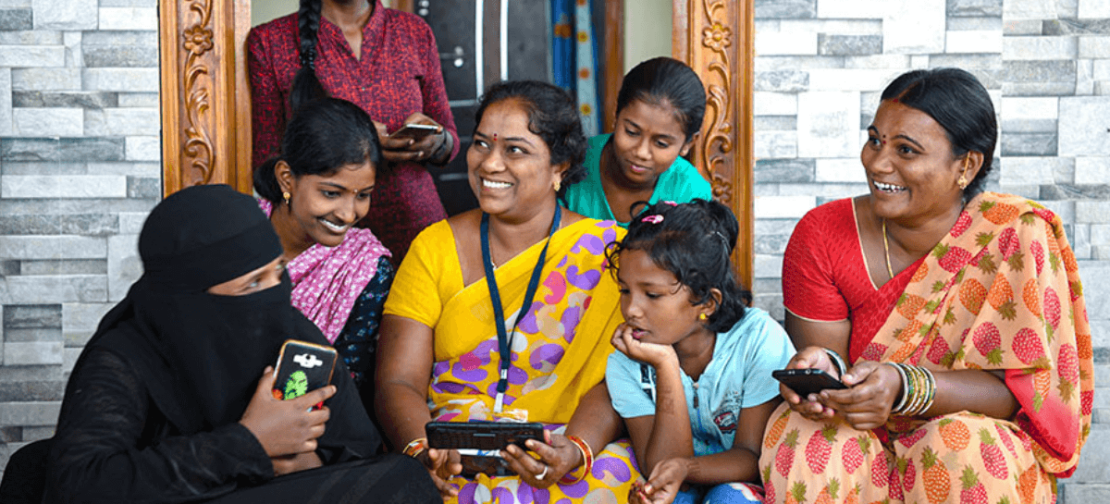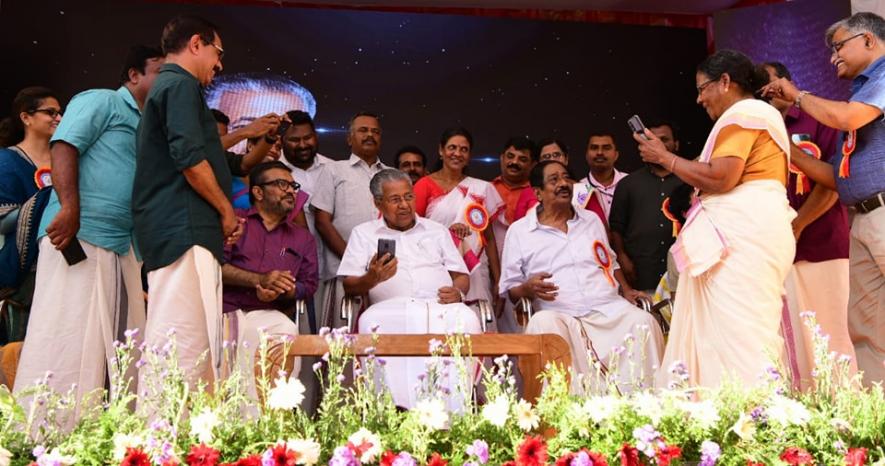
- Home
- About
- Knowledge Center
- Legislative Landscape
- Resources
- #TOGETHERFORBHARA
Kerala, as the pioneering state to attain total literacy, is now on the verge of achieving total digital literacy, as asserted by General Education Minister V. Sivankutty. Delivering his address during the State-level commemoration of International Literacy Day, the minister underscored the pivotal role of digital literacy in today’s technologically advanced society.
The State Literacy Mission Authority has undertaken a series of initiatives designed to elevate the literacy standards of learners, with a special emphasis on women belonging to Scheduled Castes and Scheduled Tribes. The comprehensive digital literacy initiative, inaugurated in its initial phase across eight districts, is dedicated to addressing the educational and socio-cultural disparities confronting these marginalized communities.
By ensuring equitable access to digital literacy programs for individuals hailing from underprivileged backgrounds, the State of Kerala aspires to narrow disparities and offer equal opportunities to all. These endeavours serve as a testament to the state’s unwavering commitment to preserving the progress achieved through its endeavours to expand literacy coverage.
Moreover, the active participation of institutions such as the State Council of Educational Research and Training (SCERT), the State Institute of Educational Technology (SIET), and the State Council for Open and Lifelong Education (SCOLE) underscores the comprehensive approach being adopted in these projects.
Kerala’s strides towards attaining total digital literacy not only signify its dedication to the cause of education but also underscore the critical role of technology in empowering individuals to thrive in the digital age. This progress serves as a noteworthy example for ministers across all states in India, inspiring them to embark on similar initiatives aimed at elevating the digital literacy quotient among their respective constituencies. Members of Legislative Assemblies (MLAs) can take inspiration from Kerala’s success story to formulate and implement policies and programs that will enhance digital literacy within their own states, thereby contributing to the broader national goal of digital empowerment.
By closely studying Kerala’s initiatives, MLAs can gain valuable insights into the strategies and policies that have proven effective in bridging the digital divide. They can work towards allocating resources for digital literacy programs, forging partnerships with educational institutions, and engaging with marginalized communities to ensure that the benefits of digital education reach all corners of their states.

Kerala’s commitment to achieving total digital literacy carries broader implications for not only ministers and MLAs in India but also for the nation as a whole. Here are some additional points to consider:
National Policy Implications: Kerala’s success in digital literacy can serve as a catalyst for the formulation of comprehensive national policies aimed at advancing digital education. The central government can draw inspiration from Kerala’s model to design initiatives that address digital disparities at a larger scale, considering the diverse needs of various states.
Economic Empowerment: Digital literacy is intrinsically linked to economic opportunities. By enhancing digital skills, individuals are better equipped to participate in the digital economy, including e-commerce, online freelancing, and remote work. Leaders across states can promote such economic empowerment by replicating Kerala’s initiatives.
Educational Innovation: The educational sector in India stands to benefit significantly from an increased focus on digital literacy. MLAs can advocate for the integration of digital technologies into the educational curriculum, promoting e-learning and online resources as tools for enhanced learning outcomes.
Digital Healthcare and Telemedicine: Kerala’s digital literacy initiatives can also inspire leaders to improve access to digital healthcare services and telemedicine. Ensuring that citizens can effectively use digital platforms for healthcare consultations and information can be a critical step toward improving healthcare outcomes in rural and underserved areas.
Government Efficiency: Leaders can leverage digital literacy to streamline government services and enhance transparency. Digital platforms for government schemes and services can be made more accessible to citizens, reducing bureaucratic barriers and promoting good governance.
Social Inclusion: Kerala’s efforts highlight the importance of addressing the digital divide, particularly among marginalized communities. MLAs can work to ensure that digital literacy initiatives prioritize inclusivity, catering to the needs of vulnerable populations.
Kerala’s strides towards attaining total digital literacy not only signify its dedication to the cause of education but also underscore the critical role of technology in empowering individuals to thrive in the digital age. This progress serves as a noteworthy example for all the states in India, inspiring them to embark on similar initiatives aimed at elevating the digital literacy quotient among their populace. The lawmakers and policy makers from each state can take lessons from Kerala’s success story to formulate and implement laws, policies and programs that will enhance digital literacy within their own states, thereby contributing to the broader national goal of digital empowerment. The lawmakers from eachs state can work towards allocating resources for digital literacy programs, forging partnerships with educational institutions, and engaging with marginalized communities to ensure that the benefits of digital education reach all corners of their states.
